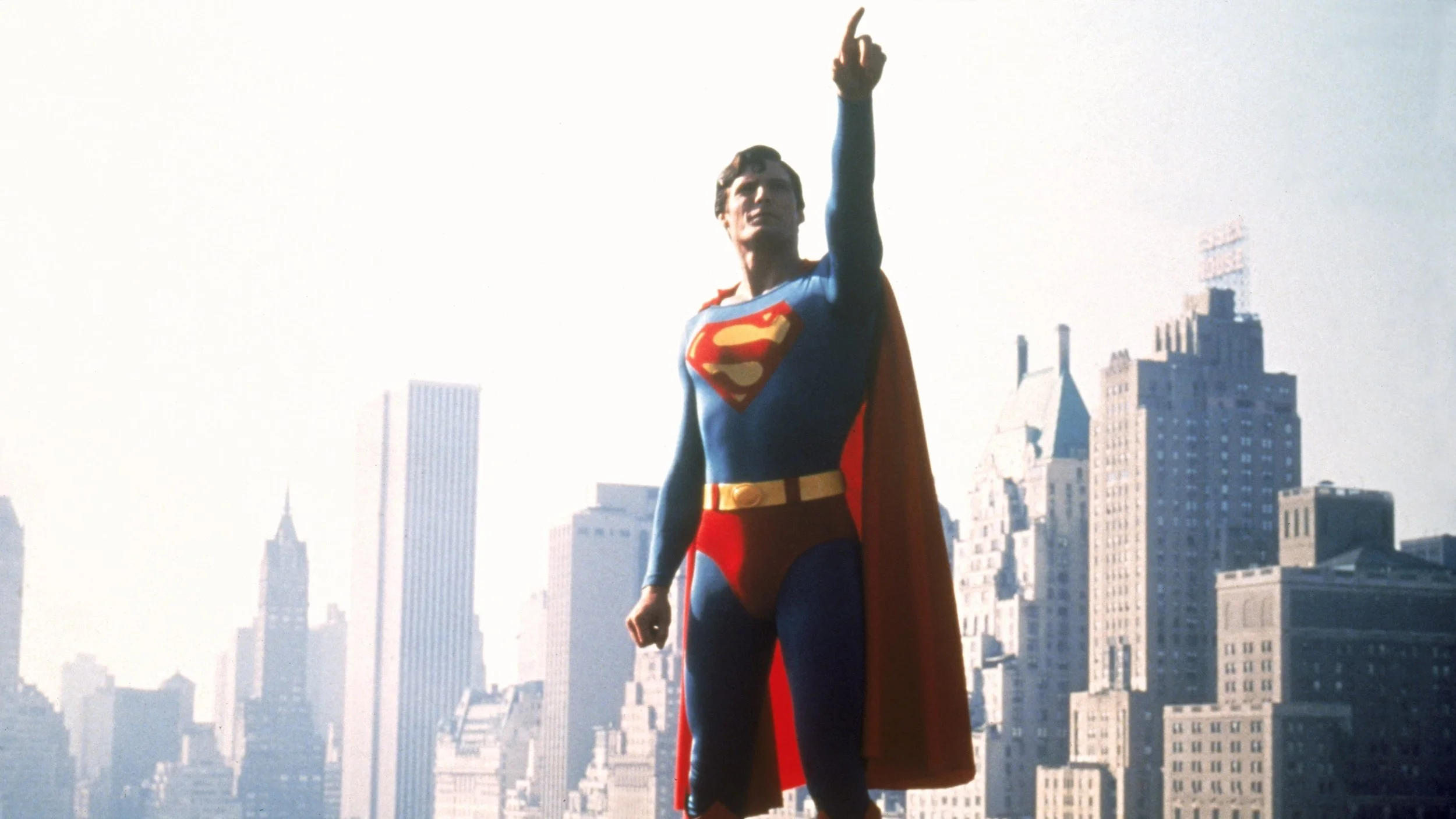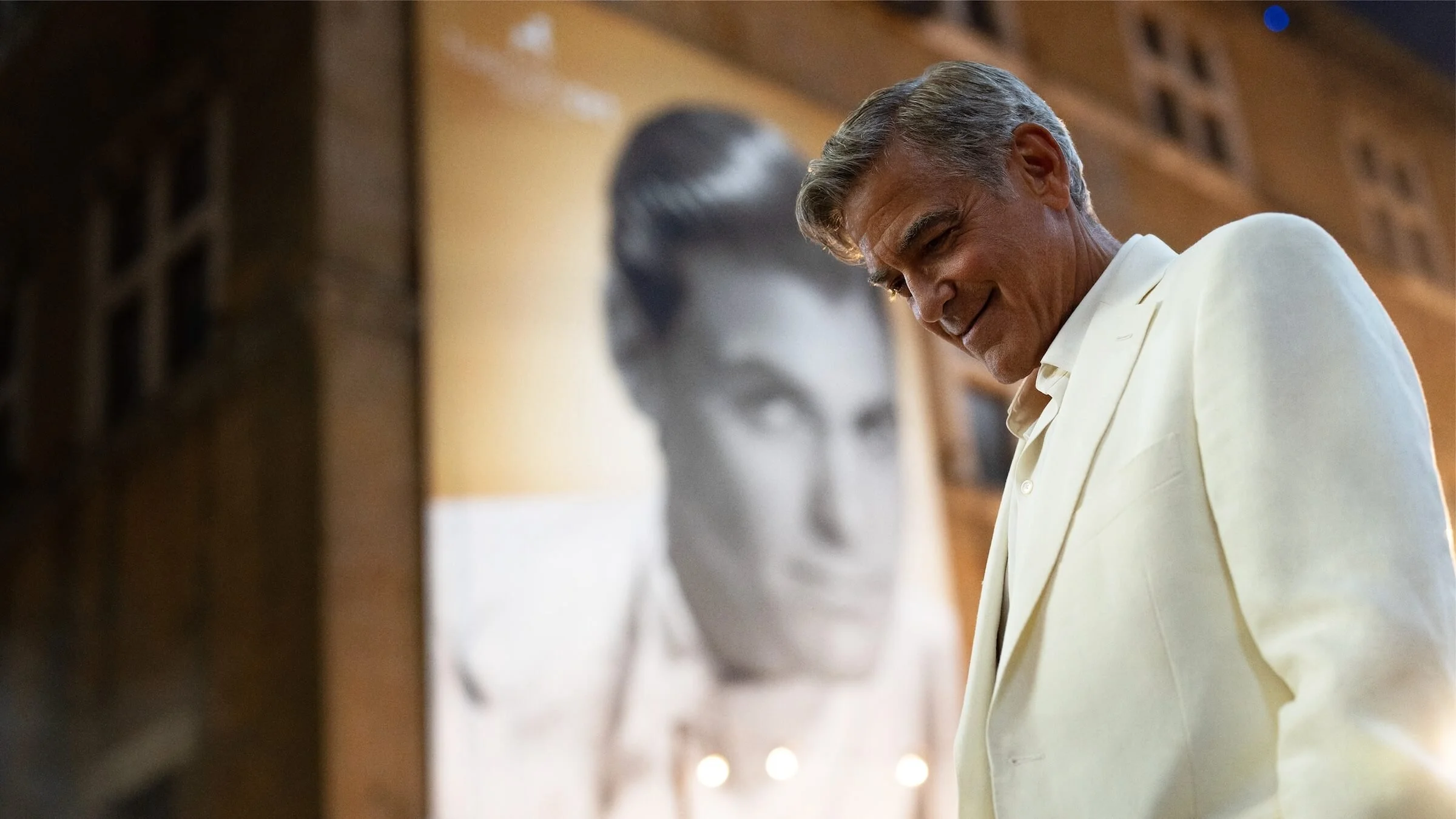Review: Superman: The Movie (1978)
If movies were judged solely on how iconic they were, surely Richard Donner’s Superman: The Movie would be one of the greatest films of all time. From the opening on the crystalline surface of Krypton to the ending where Superman makes the world move back in time, the film is full of sublime and silly images, moments that have imprinted on our collective imaginations. Of course, when you’re a kid watching it on video for the first time, this might not be so apparent. But after several Superman reboots over the interim decades, it’s become clear that in spite of the movie’s shortcomings, which ultimately hold it back from all time greatness, this is the definitive cinematic Superman.
It all starts with Christopher Reeve, the towering all-American gentlemen starring as the Man of Steel. Reeve is the real deal here, an old-fashioned hero who is gentle without seeming weak, charming without seeming phony, decidedly proper but not lame. The film spends a lot of time with an adolescent and young adult Superman played by younger actors before we meet Reeve, but it’s Reeve we think about first in this film. He plays Superman as a beacon of hope, but also a relatable man who realizes how fun and fulfilling it is to be Superman. He’s not weighed down by his identity; he’s buoyed by it, as if the very joy of saving the world lifts him into the air like Tinkerbell’s pixie dust.
It’s no small feat that Reeve can wear the tights, which have looked absurd on almost every actor who has ever donned them (there’s a reason that modern Superman movies opt for a different material for Superman’s costume). It helps that he’s six foot four, square jawed, handsome. But he also has a boyish charm, like Peter Pan, and so he doesn’t treat the tights as silly or slight. He’s comfortable in them and comfortable as the hero, which is the entire point of Superman throughout the movie.
Reeve also delights in the playacting of Clark Kent, where he can revel in the limitations of humanity, playing out life as an ordinary person who isn’t required to be superlative at every moment. He’s clumsy and naive and likes to play up his aweshucks humility to see how others react to it. Think of how Reeve’s Clark reacts to Perry White in the Daily Planet newsroom, taking his marching orders without a blink, or how he tries to talk down a mugger holding him and Lois Lane up at gunpoint. Reeve treats Clark Kent as a bit of a moral test for others; how will they treat a person they think is slower and weaker and dumber than themselves, when in fact he’s the complete opposite. It’s not an escape for Superman, since he’s comfortable as his superheroic alter ego, but it does provide a different pleasure for the character.
Reeve is also undeniably flirtatious in the role, both as Clark and Superman. So much of Superman fixates on the flirtations between Reeve and Margot Kidder as Lois Lane, best personified by the first interview between Lois and Superman on Lois’s garden balcony. Her questions grow more personal and more sexual the deeper into the conversation—she even asks him what colour panties she’s wearing and he demurely says pink once she steps back from the lead planter. There’s genuine chemistry here, comedic, romantic, but it’s not only present in the Superman and Lois scenes. It’s there with Clark and Lois too, how he’s essentially roleplaying the subordinate for her to see how she takes him. He has fun with it and how he can constantly surprise her without revealing his identity. Take the moment where he looks down at the bullet he catches after the aforementioned mugger tries to shoot Lois and smirks; it’s a little secret for him to enjoy.
It helps that Kidder is a madcap dynamo as Lois on the other end of the equation. Kidder is playing the tough, whipsmart, modern liberated woman, in many ways an updating of the character for the 1970s, when the original Lois Lane is so often a damsel in distress. But the writers and Kidder are smart enough to keep a core aspect of Lois present in even this modern take on the character: her impulsiveness. Lois is always jumping head first into a story and luckily, Superman is often there to catch her. That doesn’t rob Lois of agency; rather, she manufactures so many of the conflicts in the film, from the helicopter ride to the final drive through the earthquake, simply because she’s so fearless and bold. She needs to get her scoop and she’s willing to go to any length to get there. She moves so fast that she doesn’t always notice the little signs that Clark is giving her, which makes it so easy to believe she could never imagine him as Superman. Kidder’s energy also has a screwball quality, not only the pace of her jokes but the sarcasm and the worldliness. She bounces lines off of Reeve and others with an infectious pitterpatter; her timing is superb. Kidder’s presence lets the film delight in the screwball nature of the newsroom, ripped right from a classic like His Girl Friday.
Reeve and Kidder together are magic and so much of what is great about Superman. But Donner is wise enough to ensure that his movie is not just a screwball comedy between Superman and Lois Lane; it’s bigger, bolder. It starts as a science fiction epic as we meet Superman’s father, Jor-El. Marlon Brando is in elder statesman mode here, phoning it in in some senses (he refuses to pronounce Krypton correctly, for instance), but he adds an undeniable gravitas to the opening. The Krypton sequence is full of shiny special effects, arch epic speechifying, and moral lessons. It’s reminiscent of classic science fiction and Star Trek: The Motion Picture (which would come out the following year), but also biblical epics. It’s important to remember that Superman was originally envisioned as a Moses figure, even as he’s come to be primarily seen as a Christ figure over the years.
Donner then shifts gears and paints a beautiful, humble, mythic portrait of Americana once the action reaches Earth, like a Norman Rockwell painting come to life. The ultra-wide shots of farmer’s fields. The loving smiles of Glenn Ford and Phyllis Thaxter as Jonathan and Martha Kent, who raise Superman on earth, the platonic ideal of adoptive parents, instilling in him goodness and hope and unconditional love. The glowing lighting paints an idyllic tone that turns to tragedy as we see Jonathan Kent clutch his arm and drop dead from a heart attack. Donner frames Jonathan Kent’s death from a wide shot with Martha in the foreground and Superman draped in shadow in the barn in the background; the darkness has come to interrupt paradise.
Donner is painting with a broad brush here, but it’s undeniably effective and affecting. He’s not interested in psychological realism but rather mythic impact. We get the human dimension of the story in the interactions between Superman and Lois Lane, their flirtations, their evolving relationship. But in these early moments, we get an epic tone, one that Richard Lester (who would take over for Donner on Superman II) correctly identified in tone as more similar to the work of David Lean than to contemporary American filmmakers.
It’s funny, then, that the movie only stumbles in the actual comic book aspects of the storytelling, with the incorporation of villains and a dastardly plot. When Superman is solving ordinary crimes in Metropolis, the film sings. But every time we cut to the subterranean lair of Lex Luthor, the most brilliant criminal on the planet, played by a mugging Gene Hackman, and his idiotic girlfriend, Eve (Valerie Perrine) and lackey, Otis (Ned Beatty), the sure smooth storytelling falters. For such a supposedly brilliant criminal, Lex’s scheme is weirdly pedestrian: a real estate scheme that involves stolen nukes. Death and destruction are only a means to money. Hackman relishes the performance, but he’s an odd fit for it and the film never manages to make Lex and his gang a part of the whole. Furthermore, Otis and Eve are cartoons more than characters. Reeve and Kidder might be playing archetypes, but they’re three-dimensional characters too. Otis and Eve are not, and even Hackman’s Luthor is lacking a fuller characterization beyond pride and avarice. It is these elements, which are too central to the film’s narrative, that keep it from achieving that rarified greatness that many classics do.
The ending personifies the kind of tension between the film’s two halves: the sweeping storytelling and brilliant iconography full of genuine tension between Reeve and Kidder, and the goofy plotting and comic book hijinks. The ending involves runaway nukes and Superman going back in time by making the Earth revolve backwards. The time travel element is undeniably iconic: it’s hard to think of many sequences in blockbuster cinema more memorable. But it’s also undeniably stupid, making little sense, even in a movie about a superpowered man wearing a red cape. It also begs the question of why Superman doesn’t undo every bad thing moving forward, if his powers are truly so unlimited. It’s an imperfect ending.
But we don’t watch Superman: The Movie for perfection. We watch it for iconography, to be lifted up by its frequently stirring vision of what it means to believe a man can fly and for the star power of Reeve and Kidder in the roles they were born to play. It’s compelling, silly, mainstream entertainment with a genuine soul and the boldness to dream.
8 out of 10
Superman: The Movie (1978, USA)
Directed by Richard Donner; written by Mario Puzo, David Newman, Leslie Newman, Robert Benton, based on a story by Mario Puzo, based on Superman created by Jerry Siegel and Joe Shuster; starring Marlon Brando, Gene Hackman, Christopher Reeve, Ned Beatty, Jackie Cooper, Glenn Ford, Trevor Howard, Margot Kidder, Maria Schell, Terence Stamp, Phyllis Thaxter, Susannah York.



Joe Carnahan’s cop thriller starring Matt Damon and Ben Affleck is an enjoyable whodunnit.